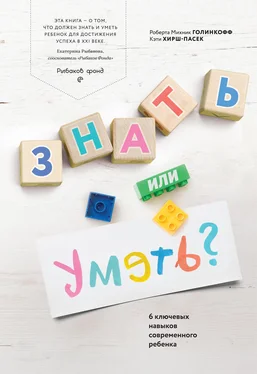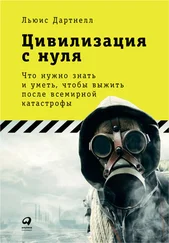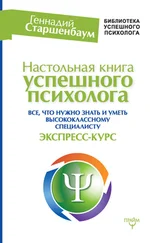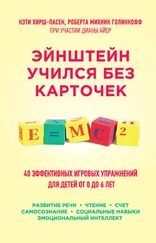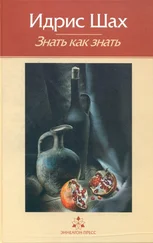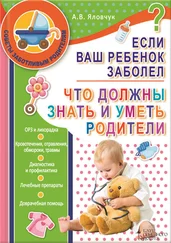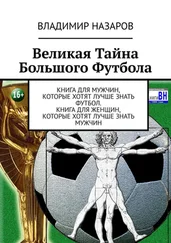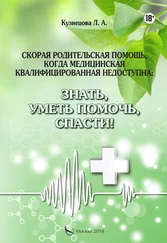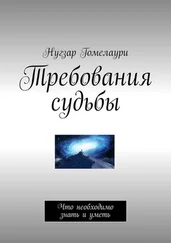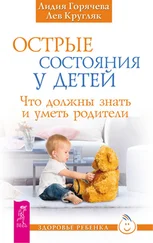McElroy, M. (30 октября 2013). A first step in learning by imitation, baby brains respond to another’s actions. University of Washington: UW Today. См. здесь: www.washington.edu/news/2013/10/30/a-first-step-in-learning-by-imitation-baby-brains-respond-to-anothers-actions/, абзац 4.
Bortfeld, H., Morgan, J.L., Golinkoff, R.M., & Rathbun, K. (2005). Mommy and me: Familiar names help launch babies into speech-stream segmentation. Psychological Science, 16, 298–304. dx.doi.org/10.1111/j.0956–7976.2005.01531.x.
Gopnik, A., Meltzoff, A. N., Kuhl, P.K. (2000). The scientist in the crib: What early learning tells us about the mind. New York, NY: William Morrow Paperbacks.
Chi, M.T.H. (2013). Learning from observing experts. (J.J. Staszewski (Ed.), Expertise and skill acquisition: The impact of William G. Chase [сс. 1–28]. New York, NY: Psychology Press.)
NoDoz — здесь имеется в виду таблетированный энергетический (ненаркотический) стимулятор.
Trebesh, L. (29 декабря 2011). Admitting you’re wrong: Getting it right in business. Взято с сайта Better Business Bureau: www.bbb.org/blog/2011/12/admitting-youre-wrong-getting-it-right-in-business/.
Hsu, S.S., & Glasser, S.B. (6 сентября 2005). FEMA director singled out by response critics. Washington Post, с. A1.
Hatton, S. (27 декабря 2011). Stella the dinosaur expert [видеофайл]. См. здесь: www.youtube.com/watch?v=jM4nomPWQ88.
Chi, M.T., Koeske, R.D. (1983). Network representation of a child’s dinosaur knowledge. Developmental Psychology, 19, 29–39. dx.doi.org/10.1037/0012–1649.19.1.29.
Pranava. (16 декабря 2012). Re: Child correcting other children and adults — What to do? [Комментарий на форуме]. См. здесь: www.mothering.com/forum/370-parenting-gifted-child/1370335-child-correcting-other-children-adults-what-do.html, абзац 1.
Blewitt, P., Golinkoff, R.M., Alioto, A. (2000). Do toddlers have label preferences? A possible explanation for word refusals. First Language, 20, 253–272.
Keil, F. (1996). Concepts, kinds, and cognitive development. Cambridge, MA: MIT Press.
Gelman, S.A., & Markman, E.M. (1985). Implicit contrast in adjectives vs. nouns: Implications for word-learning in preschoolers. Journal of Child Language, 12, 125–143. dx.doi.org/10.1017/S0305000900006279.
Gentner, D. (1983). Structure mapping: A theoretical framework for analogy. Cognitive Science, 7, 155–170. http://dx.doi.org/10.1207/s15516709cog0702_3.
Gentner, D., & Toupin, C. (1986). Systematicity and surface similarity in the development of analogy. Cognitive Science, 10, 277–300. dx.doi.org/10.1207/s15516709cog1003_2.
Oakes, L.M., Rakison, D.H. (2003). Issues in the early development of concepts and categories: An introduction. In D.H. Rakison & L.M. Oakes (Eds.), Early category and concept development: Making sense of the blooming, buzzing confusion (сс. 3–23). New York, NY: Oxford University Press. http://dx.doi.org/10.1207/s15327078in0701_7.
Gentner, D., & Toupin, C. (1986). Systematicity and surface similarity in the development of analogy. Cognitive Science, 10, 277–300. dx.doi.org/10.1207/s15516709cog1003_2.
В оригинале — sweet (буквально — «сладкая»).
Asch, S.E., & Nerlove, H. (1960). The development of double function terms in children: An exploratory investigation. In B. Kaplan & S. Wapner (Eds.), Perspectives in psychological theory (pp. 47–60). New York, NY: International Universities Press.
На английском языке «влюбляться» звучит как fall in love (буквально — «падать в любовь»).
Darling-Hammond, L. (21 мая 2007). Evaluating “No Child Left Behind.” The Nation. См. здесь: www.thenation.com/article/evaluating-no-child-left-behind/, абзац 11.
Venugopal Ramaswamy, S. (2 апреля 2015). State tests: Stakes are even higher for teachers. Lohud. См. здесь: www.lohud.com/story/news/local/2015/04/01/teachers-face-penalty-poor-student-performance/70798718/.
Shavelson, R.J., Linn, R.L., Baker, E.L., Ladd, L.F., Darling-Hammond, L., Shepard, L.A., Barton, Rothstein, R. (27 августа 2010). Problems with the use of student test scores to evaluate teachers. Economic Policy Institute. См. здесь: www.epi.org/publication/bp278/, абзац 6.
Parker-Poke, T. (24 февраля 2009). The 3 R’s? A fourth is crucial, too: Recess. The New York Times. См. здесь: www.nytimes.com/2009/02/24/health/24well.html.
Fausset, R., & Blinder, A. (14 апреля 2015). Atlanta school workers sentenced in test score cheating case. The New York Times. См. здесь: www.nytimes.com/2015/04/15/us/atlanta-school-workers-sentenced-in-test-score-cheating-case.html.
Perlstein, L. (2008). Tested: One American school struggles to make the grade. New York, NY: Holt Paperbacks.
Sullivan, M. (21 ноября 2011). Behind America’s tutor boom. MarketWatch. См. здесь: www.marketwatch.com/story/behind-americas-tutor-boom-1318016970246.
Sawyer, R.K. (Ed.). (2006). The Cambridge handbook of the learning sciences: Vol. 2., No. 5. New York, NY: Cambridge University Press.
Эта клятва — бессмысленный набор слов, созвучных настоящей клятве верности американскому флагу. Оригинальный текст звучит так: I pledge allegiance to the flag of the United States of America, and to the republic, for which it stands, one nation under God. Indivisible, with liberty and justice for all. Ребенок же запомнил: I pledge allegiance to the frog of the United States of America and to the wee public for witches hands one Asian, under God, in the vestibule with little tea and just rice for all.
Oliver, H., & Utermohlen, R. (1995). An innovative teaching strategy: Using critical thinking to give students a guide to the future. Holly Springs, MS: Rust College.
Dunlosky, J., Rawson, K.A., March, E.J., Nathan, M.J., Willingham, D.T. (2013). Improving students’ learning with effective learning techniques: Promising directions from cognitive and educational psychology. Psychological Science in the Public Interest, 14, 4–58.
Sara. (n.d.). I used to believe: The childhood beliefs site [Web log message]. См. здесь: www.iusedtobelieve.com/animals/, абзац 17.
Operator Lady. (n.d.). I used to believe: сайт о том, во что верят дети [сообщение на сайте]. См. здесь: www.iusedtobelieve.com/science/telephones/, абзац 7.
Читать дальше
Конец ознакомительного отрывка
Купить книгу
